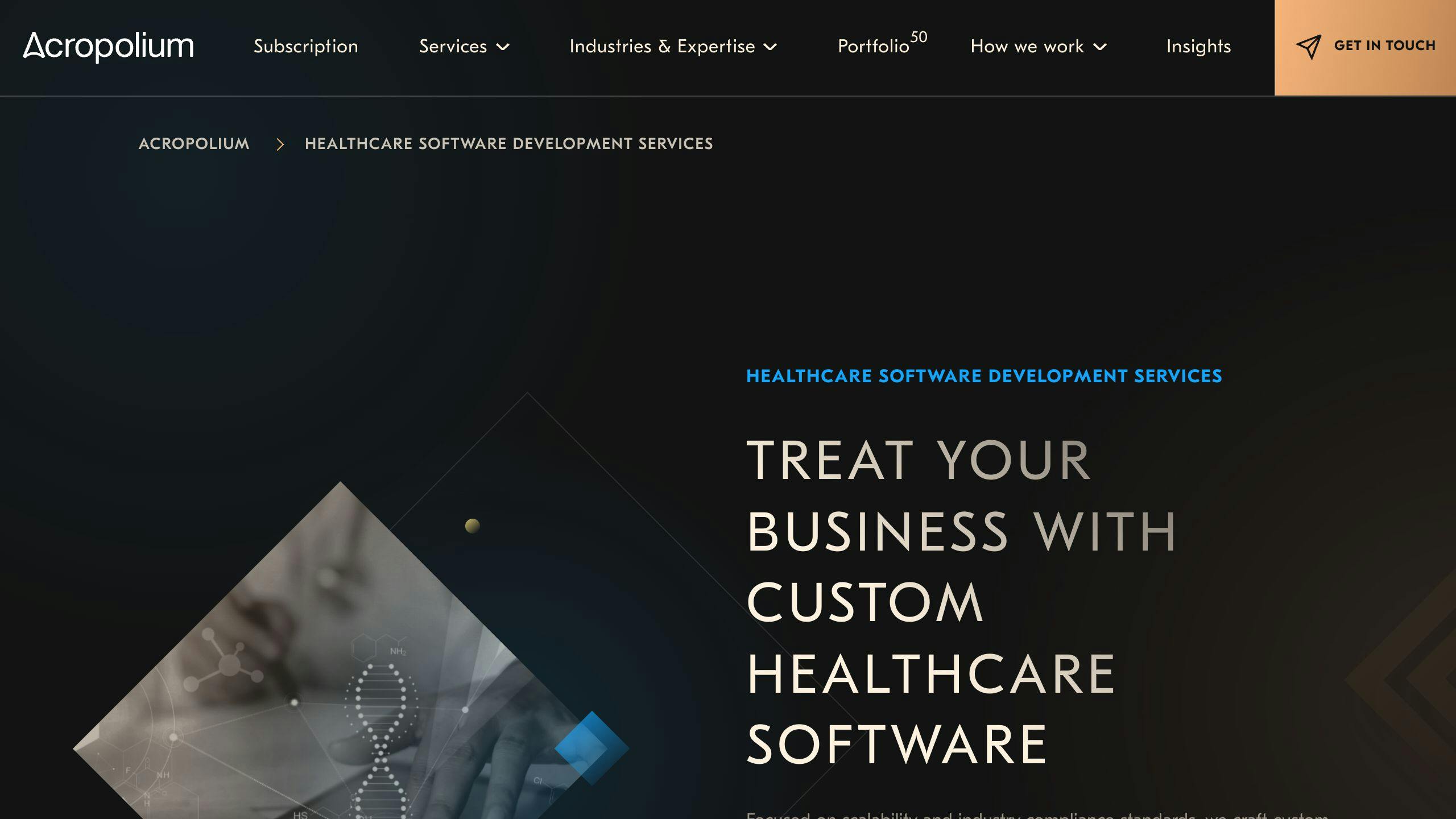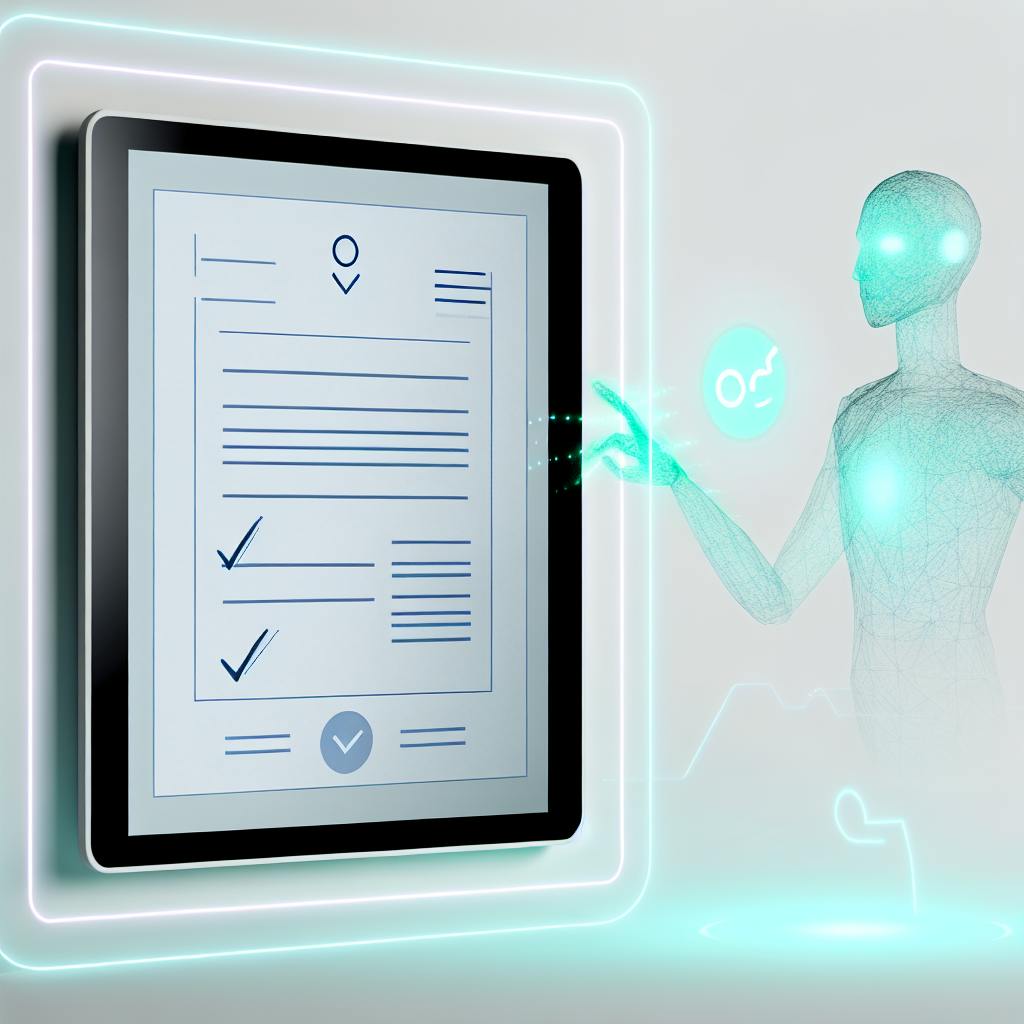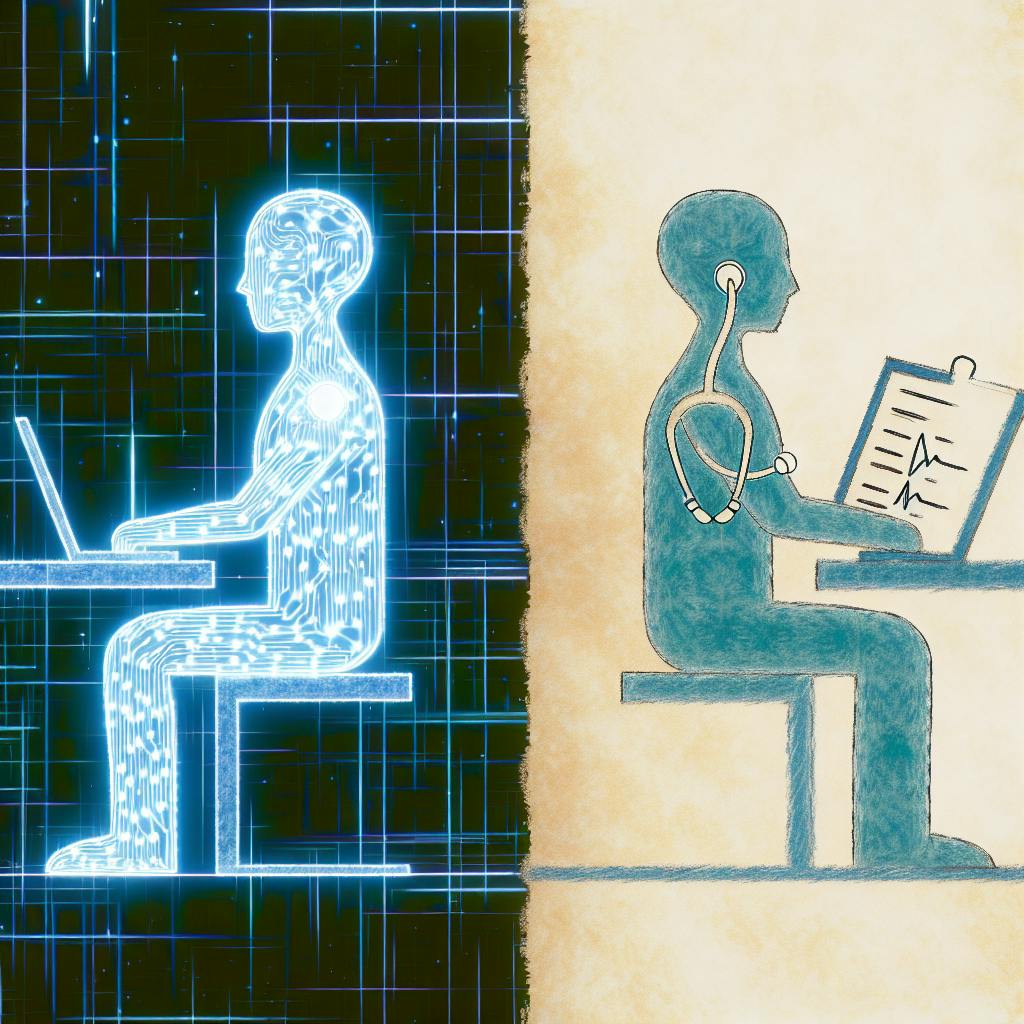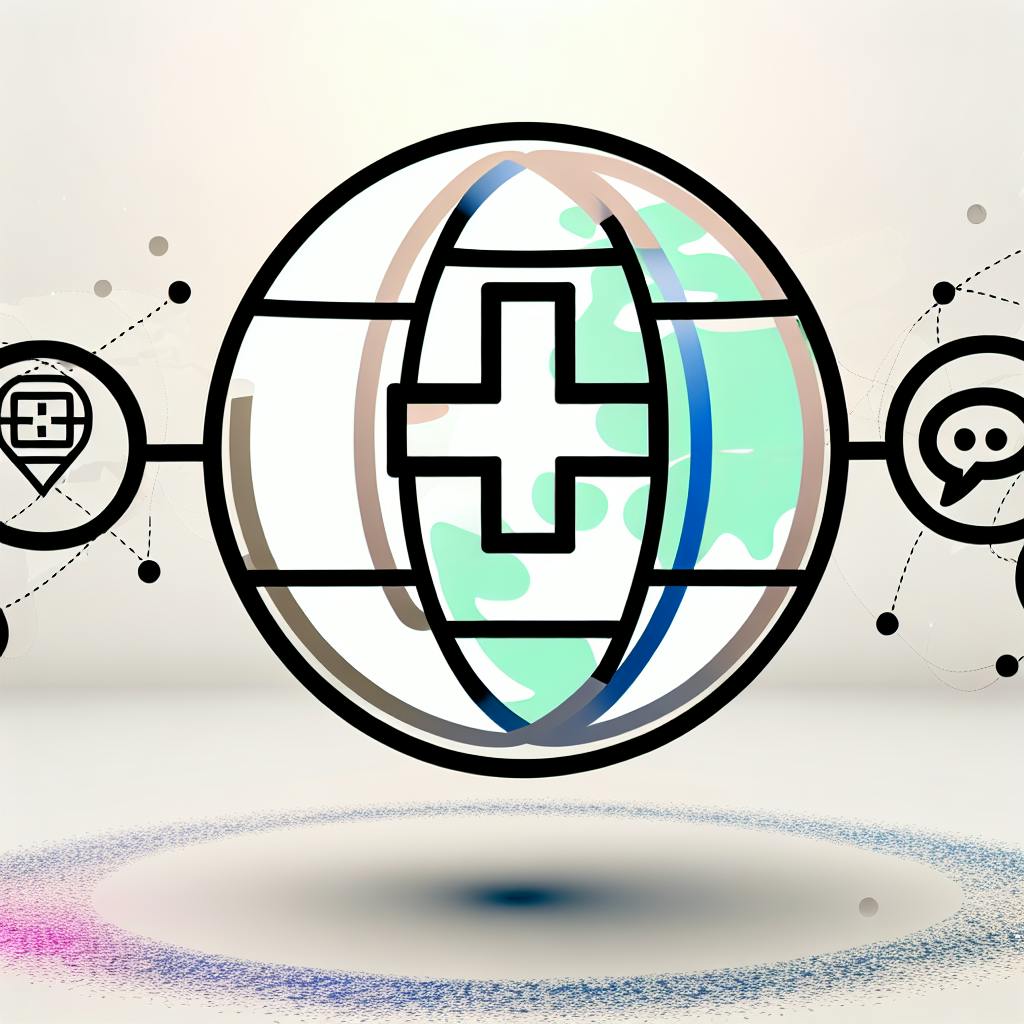Machine learning is transforming healthcare, making it more personalized, efficient, and predictive. Here's a quick overview of what to expect:
- Precision Medicine: Tailoring care to individual genetic profiles.
- Enhanced Imaging Diagnostics: Using AI for more accurate disease detection.
- Optimized Healthcare Administration: Streamlining paperwork and administrative tasks.
- Predictive Health Analytics: Forecasting health issues before they arise.
- Transformative Drug Development: Accelerating the creation and testing of new drugs.
- Unlocking Electronic Health Record Potential: Making patient data more accessible and useful.
- Intelligent Clinical Decision Support: Assisting doctors with diagnosis and treatment plans.
Ethical considerations are crucial, focusing on privacy, transparency, fairness, and inclusion to ensure benefits reach everyone equitably. The future of healthcare machine learning is promising, aiming for more personalized care, automation in clinical workflows, and seamless data sharing, all while prioritizing ethical practices.
Key Machine Learning Trends in Healthcare

1. Precision Medicine and Personalized Care
Machine learning helps doctors create care plans that are just right for you by looking at your health history, genes, and lifestyle. This means treatments can be tailored to work better for each person.
Examples include:
- Making special treatment plans for cancer patients based on their tumor types
- Figuring out if you're at risk for certain diseases by looking at your genes
- Predicting how well you'll react to medicines based on your DNA
This approach is moving healthcare from just treating sickness to preventing it by focusing on each person's unique needs.
2. Enhanced Imaging Diagnostics
Machine learning is making it easier and faster to read medical images like X-rays and MRIs. It can spot things that might be missed by the human eye.
Applications include:
- Finding cancer early in breast and lung scans
- Detecting brain issues in MRI and CT scans
- Spotting signs of diabetes in eye images
- Helping analyze ultrasound images
Doctors are using these AI tools to help them diagnose diseases earlier and more accurately.
3. Optimized Healthcare Administration
Machine learning is making paperwork and other office tasks faster and cheaper. This saves a lot of money and lets doctors focus more on caring for patients.
Areas of focus include:
- Using AI to help with note-taking
- Making it easier to process insurance claims
- Managing supplies and scheduling staff better
By cutting down on office work, healthcare providers can spend more on patient care.
4. Predictive Health Analytics
Machine learning looks at health data to help predict diseases and plan better for community health. It helps in:
- Identifying who might get diseases like heart disease or diabetes
- Focusing on patients who need more care
- Understanding how things like where you live affect your health
- Testing how well health programs might work
This information helps health organizations use their resources wisely to improve community health.
5. Transformative Drug Development
Machine learning is speeding up how new medicines are found and tested. This means:
- Finding patients for clinical trials faster
- Screening lots of compounds quickly to find new treatments
- Using real-world data to make trials more effective
- Lowering the chance of trial failures
Machine learning is making it faster to find and test new drugs that could save lives.
6. Unlocking Electronic Health Record Potential
Even though electronic health records (EHRs) are common, it's hard to get useful information from them. Machine learning can read and organize this data so it's easier to use.
This helps in:
- Pulling out important information like diagnoses and treatments
- Finding groups of patients for studies or trials
- Understanding how care is given across different places
- Making decision support systems better with more detailed patient info
By making EHR data more useful, healthcare can be improved for everyone.
7. Intelligent Clinical Decision Support
Machine learning is helping doctors make better decisions by combining patient information, medical knowledge, and AI. This includes:
- Helping diagnose diseases
- Suggesting treatments that are likely to work well
- Predicting how treatments might affect a patient
- Alerting doctors to possible issues with tests or treatments
By using AI along with their own knowledge, doctors can provide better and safer care.
Ethical Considerations for Healthcare Machine Learning
As machine learning and AI become more common in healthcare, it's important to think about the ethical side of things. This includes making sure patient privacy is protected, avoiding unfair biases, being clear about how AI works, and involving the community in the process. Let's make sure these technologies are used in a good and fair way.
Protecting Patient Privacy
Keeping patient information safe is really important, especially when AI systems use a lot of this data. There are ways to hide patient identities in data, like adding random noise or training algorithms in different places without sharing the actual data. Following rules like HIPAA and having privacy experts on board can help keep patient data safe. It's also key to make sure patients know how their data is being used.
Mitigating Algorithmic Bias
Sometimes, AI can pick up on unfair biases if the data it learns from isn't fair to begin with. This could end up hurting groups of people who are already left out. To fight this, we can:
- Use data that includes everyone
- Check if AI is being unfair and fix it
- Make fairness an important goal
- Work with the community to create fair AI
Checking AI for biases and being open about it helps everyone trust the technology more.
Enhancing Transparency
People trust AI more when they understand how it works. Explaining AI decisions and showing key information on dashboards can help. Being open to checks by regulators and sharing how AI is used also builds trust.
Community-Centered Design
It's great when doctors, patients, and others help design AI. This makes sure the technology really meets people's needs and includes different perspectives. Setting up ethics groups, letting the community check AI, and listening to what users say can lead to better and more responsible AI.
By keeping an eye on privacy, bias, how clear AI is, and including everyone in the process, machine learning in healthcare can move forward in a good way. Working together across different fields and keeping ethics in mind is the way to go.
sbb-itb-527d68c
The Future of Machine Learning in Healthcare
Democratizing Precision Medicine
Machine learning is making it easier and cheaper for more people to get care that's just right for them. It looks at lots of health information to figure out the best treatment for each person's unique health, genes, and way of life. As computers get better and we have more health info, these smart programs will help even more people get care that fits them perfectly.
Here's how it might happen:
- Free ML models let smaller clinics offer custom care
- Cloud services let doctors analyze patient info anytime
- Wearables track your health all the time to adjust your care
- Talking to voice helpers builds a health profile just for you
These changes mean more people can get care that's tailored just for them.
Automating Clinical Workflows
Hospitals are using robots and AI more to do routine tasks. These technologies keep getting better, so soon they might do even more jobs like:
- AI writing down what doctors say as official health notes
- Robots scheduling visits and handling insurance paperwork
- Voice helpers asking patients questions before they see the doctor
- Checklists making sure doctors follow the right steps
This lets doctors spend more time with patients, cuts costs, and reduces mistakes.
Seamless Interoperability and Data Sharing
A big goal is to make it easy to share health records between doctors, researchers, and patients. Machine learning is great at making sense of lots of different types of health info.
In the future, new tools will help:
- Share health info quickly between different systems
- Spot diseases early by looking at data from lots of people
- Let patients see all their health history in one place
- Use big health databases for research
Making it easy to share and understand health info will help everyone get better care.
Conclusion
An Ethical Imperative for Healthcare ML
Machine learning is really changing healthcare, making it more focused on preventing diseases and giving care that's just right for each person. But, to make sure these changes are good for everyone, we need to always think about ethics.
As we use these tools more, it's important to keep an eye on keeping data safe, being clear about how things work, making sure there's no unfairness, and making sure everyone is included. Success will come from working together and always trying to do the right thing.
Summary of Key Ethical Considerations
-
Privacy: We need strong protections for patient data as it moves around. Following laws like HIPAA, making data anonymous, and sharing data carefully can help keep information safe.
-
Transparency: Being open about how machine learning makes decisions helps build trust. Using dashboards to show important info can help everyone understand what's going on.
-
Fairness: It's important to look for and fix any unfairness in the system, and to listen to many different voices when making these tools.
-
Inclusion: Designing with patients in mind and involving the community leads to better and fairer technology.
Talking about ethics and keeping patients in mind will help guide us. Experts in technology, medicine, law, policy, and the community need to work together to make sure the benefits of machine learning reach everyone in a trustworthy way.
The Outlook: Cautiously Optimistic
The COVID-19 pandemic showed us what machine learning can do but also pointed out problems like data being stuck in different places. The crisis made people work together more, which led to new ideas.
If we keep focusing on ethics, machine learning can make medicine more personal, help with routine tasks, and make it easier to share health information. This would give patients and doctors better information for making health decisions.
Looking ahead, we need to keep checking how new technologies affect people, focusing on keeping data safe and being open to maintain trust. Progress will be slow and steady, always aiming to do better ethically.
If we keep including everyone, being fair, and open as we move forward, machine learning will make healthcare much better. We're hopeful but careful, making sure to keep ethics and people first.
Related Questions
How AI and machine learning will impact the future of healthcare?
AI and machine learning are going to change healthcare a lot in the future. They will help with:
- Clinical diagnostics: AI can look at medical pictures and data to spot diseases early and more accurately. This helps doctors make better decisions quickly.
- Public health: By studying health data from lots of people, AI can predict when diseases might spread, figure out who is most at risk, and help decide where to send resources to improve health for everyone.
- Personalized medicine: AI can look at your genes, how you live, and your health history to suggest treatments that are just right for you. This is how medicine will become more personal.
- Administrative tasks: AI is already taking over boring jobs like paperwork and billing to save money and make healthcare workers' lives easier.
- Medical research: Machine learning can quickly go through research data to help find new treatments and understand diseases better.
In short, AI and ML can make healthcare easier to get to, cheaper, save lives by catching illnesses early, and bring in a new age of care that's made just for you.
What is the future trend for machine learning?
Some big trends for machine learning in the future are:
-
More automation of regular tasks to make things more efficient
-
Better understanding of human language for easier talking to computers
-
Improved ability to analyze pictures and videos
-
Using edge computing to do real-time data analysis right on devices
-
More use of GANs to make realistic but fake data
-
Easier access to ML through free tools, cloud services, and no-code options
-
Paying more attention to making AI understandable and ethical
As technology gets better and we have more data, machine learning will become even more important in many areas.
What is the next big thing in healthcare technology?
Many people think AI and machine learning will be the next big thing in healthcare. Some upcoming technologies include:
- AI helping to find and make new drugs
- Better analysis of medical images to catch diseases early
- Using ML to make hospitals run smoother
- Smart devices that keep an eye on your health all the time
- Virtual doctors and health helpers that can talk to you
- Using data to figure out who might get sick
- Secure ways to share your health info with doctors
These technologies can make healthcare more about preventing illness, tailor-made for you, and more efficient.
What is the future direction of AI in healthcare?
The future of AI in healthcare is about:
- Mixing AI into everyday health tasks
- Making it easier for people to get care from anywhere
- Creating treatment plans based on lots of data about you
- Predicting health risks for individuals and groups
- Taking over routine jobs so staff can focus on caring for patients
- Finding new treatments and health insights faster
- Sharing health data safely while keeping it private
- Keeping track of results to make AI tools better over time
Basically, AI wants to make sure everyone gets the care they need when they need it, based on a deep understanding of their health.


